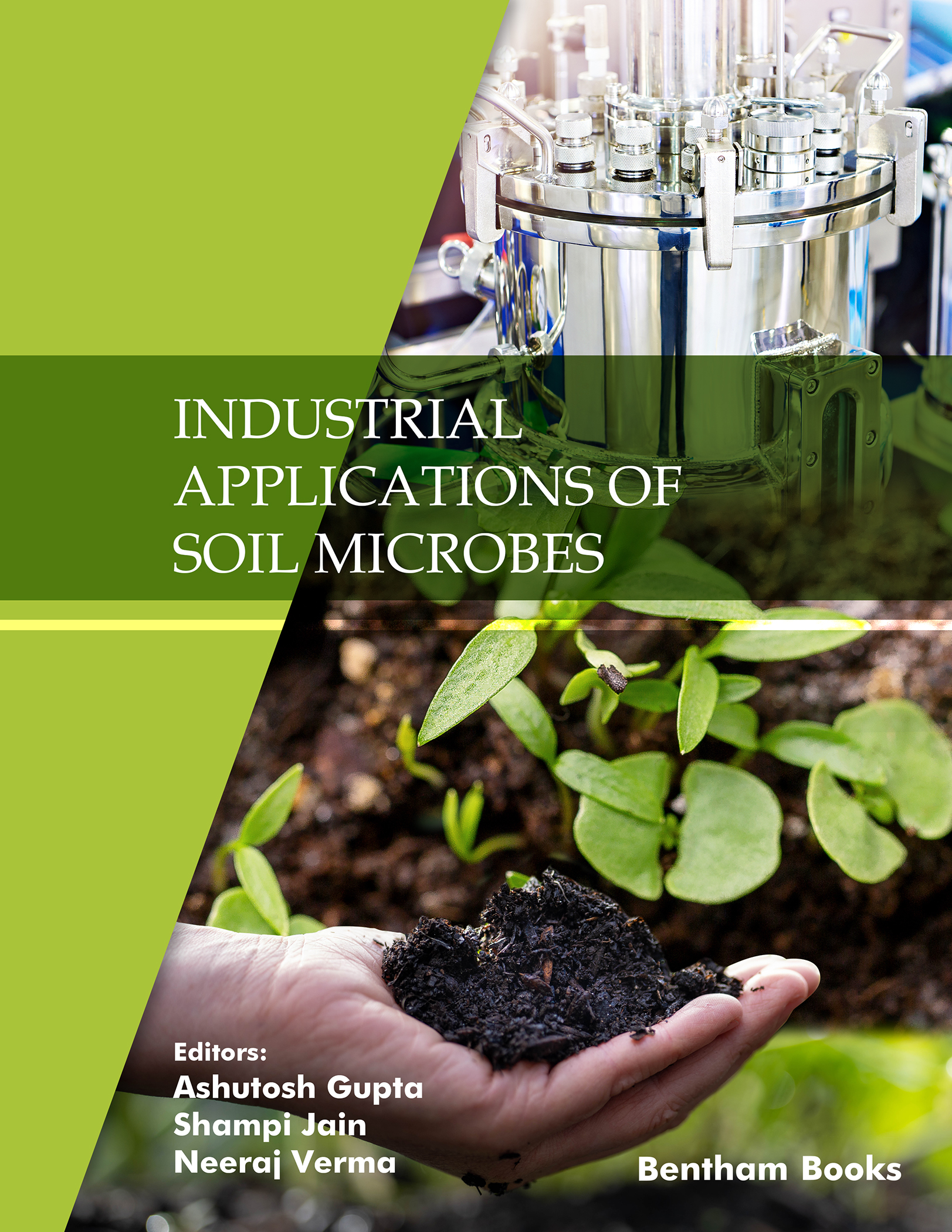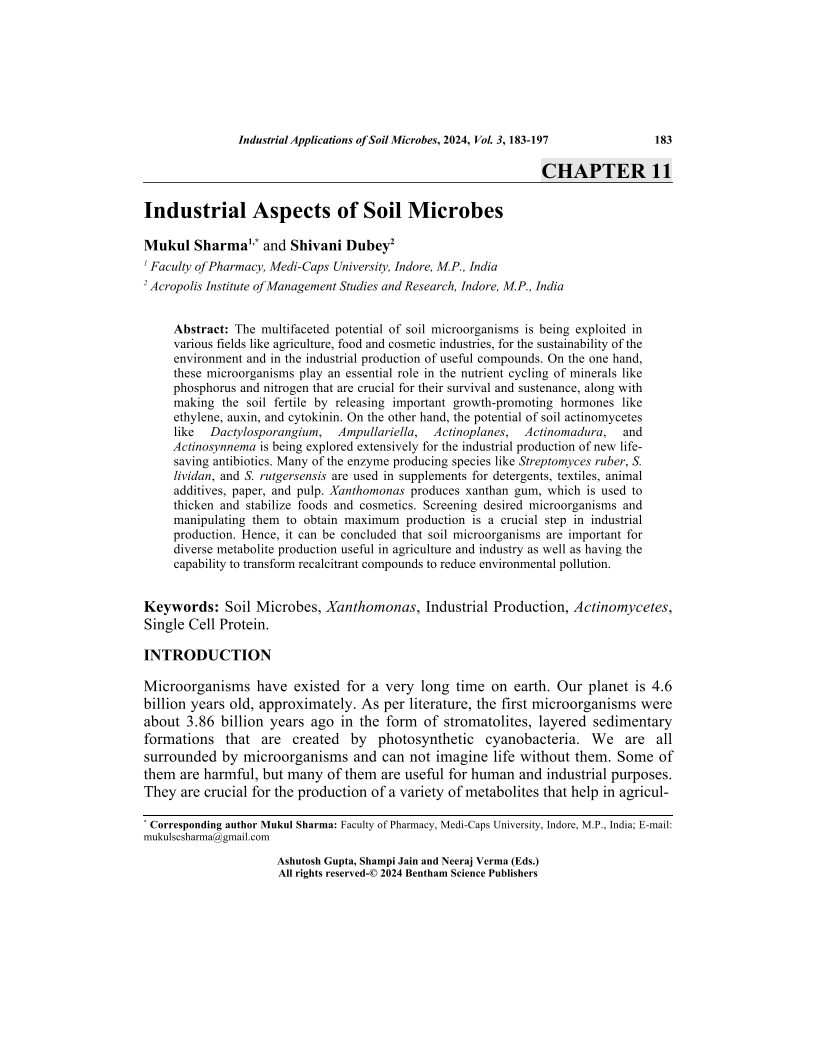Industrial Aspects of Soil Microbes

- Authors: Mukul Sharma1, Shivani Dubey2
-
View Affiliations Hide Affiliations1 Faculty of Pharmacy, Medi Caps University, Indore, M.P., India 2 Acropolis Institute of Management Studies and Research, Indore, M.P., India
- Source: Industrial Applications of Soil Microbes: Volume 3 , pp 183-197
- Publication Date: April 2024
- Language: English
Industrial Aspects of Soil Microbes, Page 1 of 1
< Previous page | Next page > /docserver/preview/fulltext/9789815079753/chapter-11-1.gif
The multifaceted potential of soil microorganisms is being exploited in various fields like agriculture, food and cosmetic industries, for the sustainability of the environment and in the industrial production of useful compounds. On the one hand, these microorganisms play an essential role in the nutrient cycling of minerals like phosphorus and nitrogen that are crucial for their survival and sustenance, along with making the soil fertile by releasing important growth-promoting hormones like ethylene, auxin, and cytokinin. On the other hand, the potential of soil actinomycetes like Dactylosporangium, Ampullariella, Actinoplanes, Actinomadura, and Actinosynnema is being explored extensively for the industrial production of new lifesaving antibiotics. Many of the enzyme producing species like Streptomyces ruber, S. lividan, and S. rutgersensis are used in supplements for detergents, textiles, animal additives, paper, and pulp. Xanthomonas produces xanthan gum, which is used to thicken and stabilize foods and cosmetics. Screening desired microorganisms and manipulating them to obtain maximum production is a crucial step in industrial production. Hence, it can be concluded that soil microorganisms are important for diverse metabolite production useful in agriculture and industry as well as having the capability to transform recalcitrant compounds to reduce environmental pollution.
-
From This Site
/content/books/9789815079753.chapter-11dcterms_subject,pub_keyword-contentType:Journal -contentType:Figure -contentType:Table -contentType:SupplementaryData105

